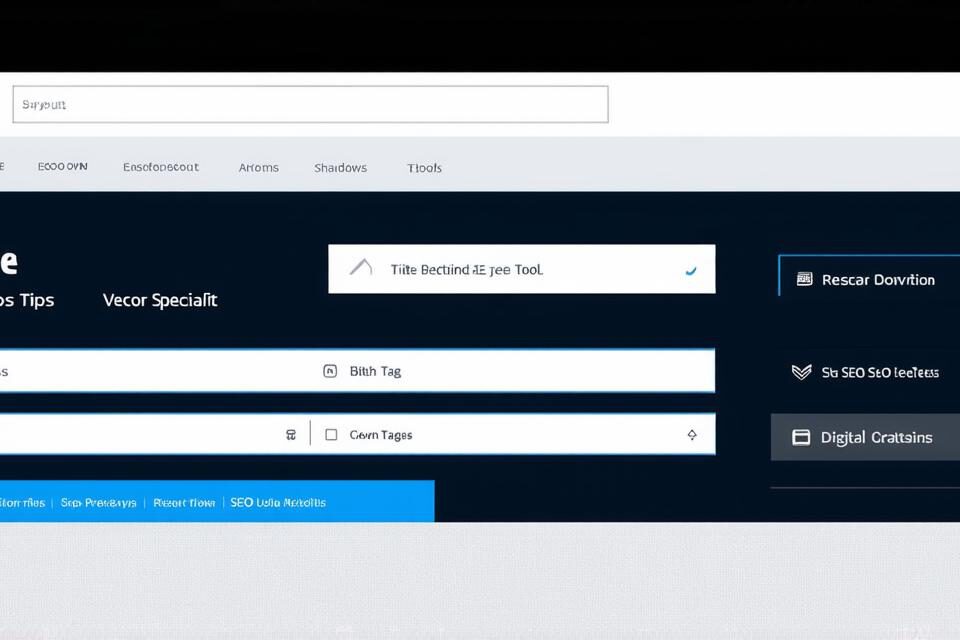SEO Specialist Tips for Effective Meta Title Tag Development

<!DOCTYPE html>
Understanding Meta Tags in VR Development
Meta tags are HTML attributes that provide additional information about a webpage to search engines. While there are several types of meta tags, the meta title tag is one of the most important ones as it appears on the search engine result page (SERP) and gives users an idea of what to expect when they click through to your website. In VR development, meta titles can help attract potential users who are searching for VR experiences or related content.
2. Use relevant keywords
Meta titles are an opportunity to include your target keywords in a natural way. However, avoid keyword stuffing or overusing your keywords as this can lead to penalties from search engines. Instead, focus on including your target keywords in a concise and relevant manner that accurately reflects the content of your website.
3. Include unique selling points (USPs)
Your meta title should highlight what sets your VR development project apart from others. This could be the unique features of your VR experience, the level of immersion it provides, or any other USP that makes your project stand out.
4. Use descriptive language
Your meta title should accurately reflect the content of your website. Use descriptive language that clearly conveys what users can expect when they click through to your site.
5. Optimize for mobile devices
With more and more users accessing the web via mobile devices, it’s important that your meta title is optimized for mobile viewing. This means using a responsive design that adjusts to different screen sizes and ensures that your meta title is easily readable on smaller screens.
Case Studies: Successful Meta Titles in VR Development
1. The Lab by Oculus VR
Meta title: “Experience Virtual Reality like never before.”
2. Tilt Brush by Google VR
Meta title: “Create 3D art in Virtual Reality.”
3. A-Frame by Mozilla VR
Meta title: “Build your own Virtual Reality experiences.”
FAQs: Answering Common Questions on Meta Title Tag Development in VR Development
1. What is the recommended length for a meta title tag?
The recommended length for a meta title tag is 70 characters, including spaces.
2. Can I include special characters or emojis in my meta title?
No, special characters and emojis are not allowed in meta titles as they can cause issues with search engine algorithms.
3. How often should I update my meta title tag?
You should update your meta title tag periodically to keep it fresh and relevant to your target audience. However, avoid making too many changes too frequently as this could harm your SEO efforts.
4. Is there a limit on the number of keywords in a meta title tag?
There is no specific limit on the number of keywords in a meta title tag, but it’s important to include relevant and informative keywords in a natural way that accurately reflects the content of your website. Avoid keyword stuffing or overusing your keywords as this can lead to penalties from search engines.
Summary: Effective Meta Title Tag Development for VR Developers
Meta tags are an essential component of any VR development project’s SEO strategy. By following the tips outlined in this article, you can create effective meta title tags that attract and engage potential users to your website. Remember to keep it short and concise, include relevant keywords, use descriptive language, optimize for mobile devices, and regularly update your meta title tag to keep it fresh and relevant. With these tips in mind, you can improve the visibility of your VR development project on search engines and drive more traffic to your website.
